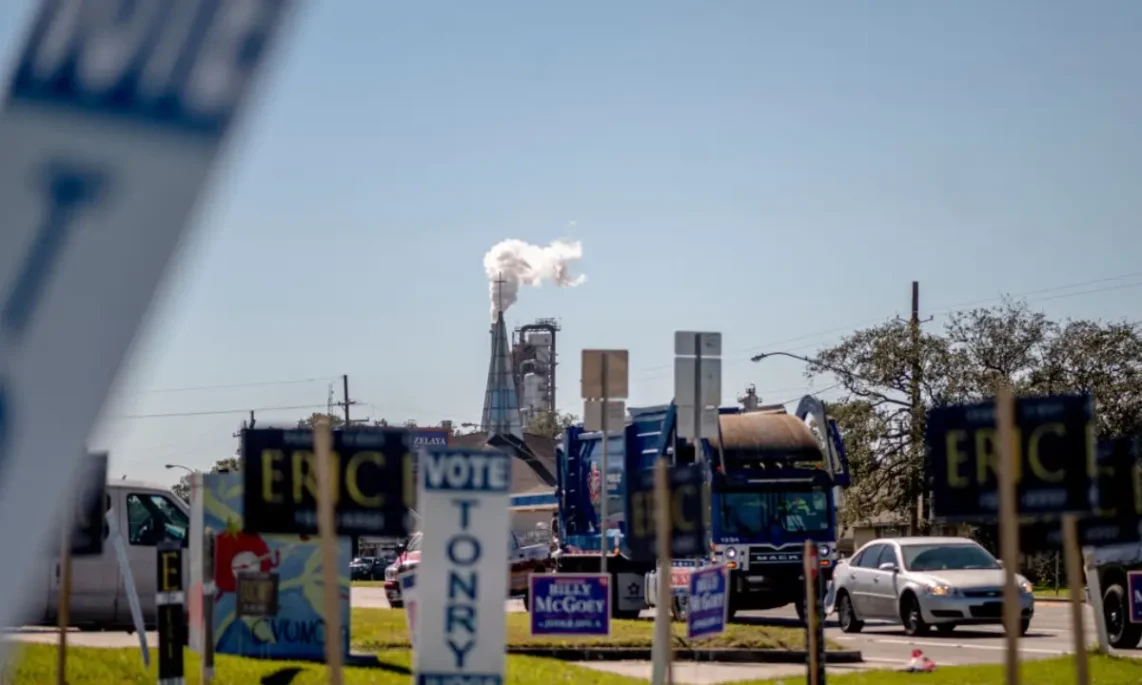A federal court recently blocked Louisiana’s new congressional map, overturning the state’s second majority-Black district and potentially favoring Republicans in upcoming elections.
However, a group of “non-Black voters” filed a lawsuit to challenge the map, alleging racial gerrymandering. The recently proposed map restructured the constituency of Republican Rep. Garrett Graves, resulting in a district where 56 percent of the population was Black.
The map was signed into law earlier this year. The three-judge panel found that a bill pushed by state legislators violated a clause in the 14th Amendment that ensures equal protection under the Constitution. Senate Bill 8 provided for the redistricting of congressional districts in the state.

In November of 2023, a three-judge panel from the U.S. Fifth Circuit ordered state legislators to finalize a new map with adjusted voting districts by Jan. 15 for the 2024 Louisiana congressional elections. This ruling coincided with legal challenges faced by several GOP-led states accused by the NAACP and other groups of racial discrimination and gerrymandering to exclude Black voters.
Louisiana’s congressional redistricting has faced prolonged legal challenges. A previous district court ruling in 2022 found that the map designed by state Republicans after the 2020 Census potentially violated the Voting Rights Act by diminishing Black voter influence.
However, following an appeal by the state, the Supreme Court effectively upheld that map for the 2022 midterms by issuing an injunction to the lower court’s ruling in June 2022. This resulted in five white Republicans and one Black Democrat being elected despite Louisiana’s sizable Black population.
The following June, the Supreme Court lifted the injunction to the lower court’s decision, compelling the state to revise its map to empower Black voters. The revised map, created by the GOP-controlled legislature in January, included a new majority-Black district stretching from northwest Louisiana to East Baton Rouge.
Twelve “non-Black” voters, in their lawsuit against the new map, argued that “the state engaged in textbook racial gerrymandering,” adding that it infringed on civil rights safeguards under the 14th and 15th amendments when it drew up a second majority-Black district to adhere to the previous court directive. They alleged that their “personal dignity” was violated because the new congressional map “racially maligns” them.
District Judges David C. Joseph and Robert R. Summerhays, both appointees of former President Donald Trump, tossed the new district, saying that race played a “predominant role” when drawing the lines.
However, Judge Carl E. Stewart, a Bill Clinton appointee, wrote in his dissent, “I worry that the panel majority’s decision fails to properly assess the history that led to S.B. 8 and, consequently, dooms us to repeat this cycle.”
Sarah Brannon, deputy director of the ACLU’s Voting Rights Project, echoed Stewart, saying in a statement, “This decision does not change the fact that a second Black majority district is required for Black voters in Louisiana to have an opportunity for fair and equal representation.”
The office of the Louisiana Secretary of State has established May 15 as the cutoff date for the state’s congressional map to be finalized for utilization in this year’s elections while lawmakers decide the best way forward.
Paul Hurd, a legal representative for the voters contesting the map, expressed his appreciation in a statement, saying “that the court ruled in favor of the twelve courageous Plaintiffs who challenged the new districting plan,” according to NBC News.
Meanwhile, civil rights groups condemned the court’s decision and vowed to continue the fight for a fair map representing Black Louisianians during the 2024 elections.
Nora Ahmed, legal director of the American Civil Liberties Union (ACLU), said in a statement that the dilution of Black voters in Louisiana has long kept them from having representatives of their choice.
“We are disappointed to learn this harmful pattern has been upheld at this juncture of the lawsuit, but we are undeterred in our fight for fair elections for Black Louisianians,” Ahmed added.
“We are delayed but not deterred in our ongoing fight for a fair congressional map,” Michael McClanahan, president of the NAACP Louisiana State Conference, said in a statement. “While we disagree with the ruling today, we know that the law and the facts remain clear and that Louisiana’s Black population deserves the full protections of the Voting Rights Act and a map that allows us to have a voice in the political process. We need fair representation in Congress — that is the only path forward.”


